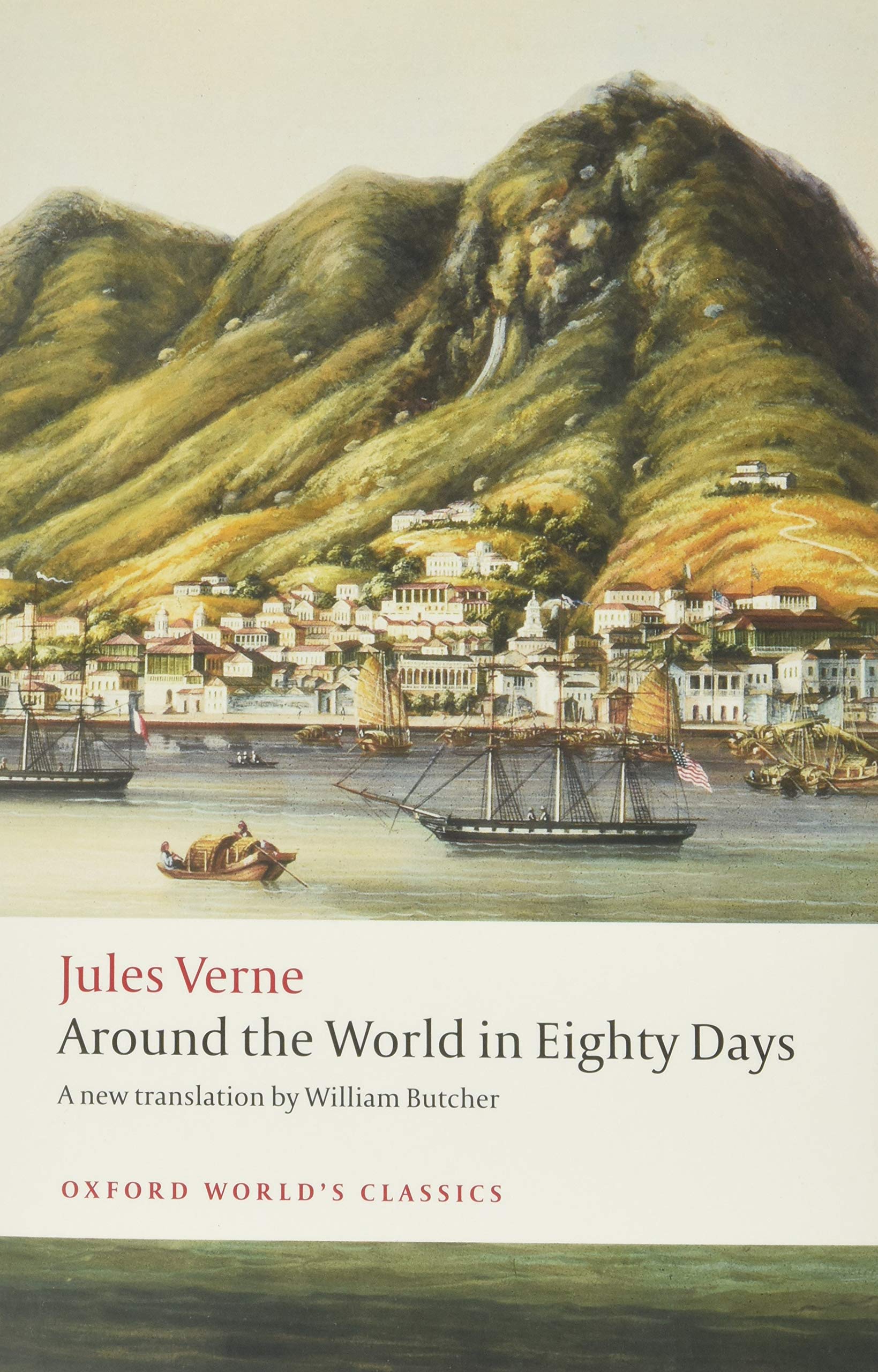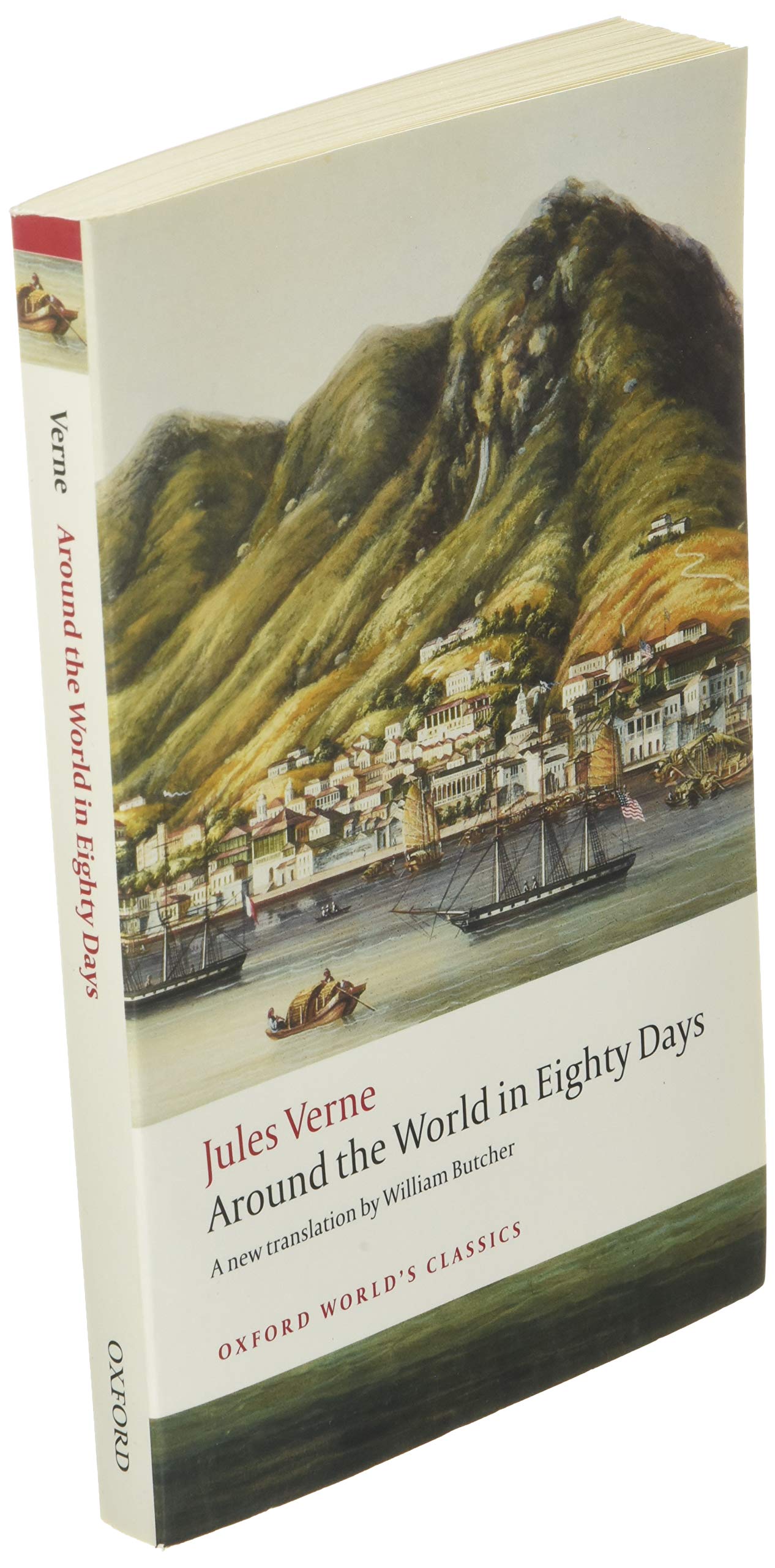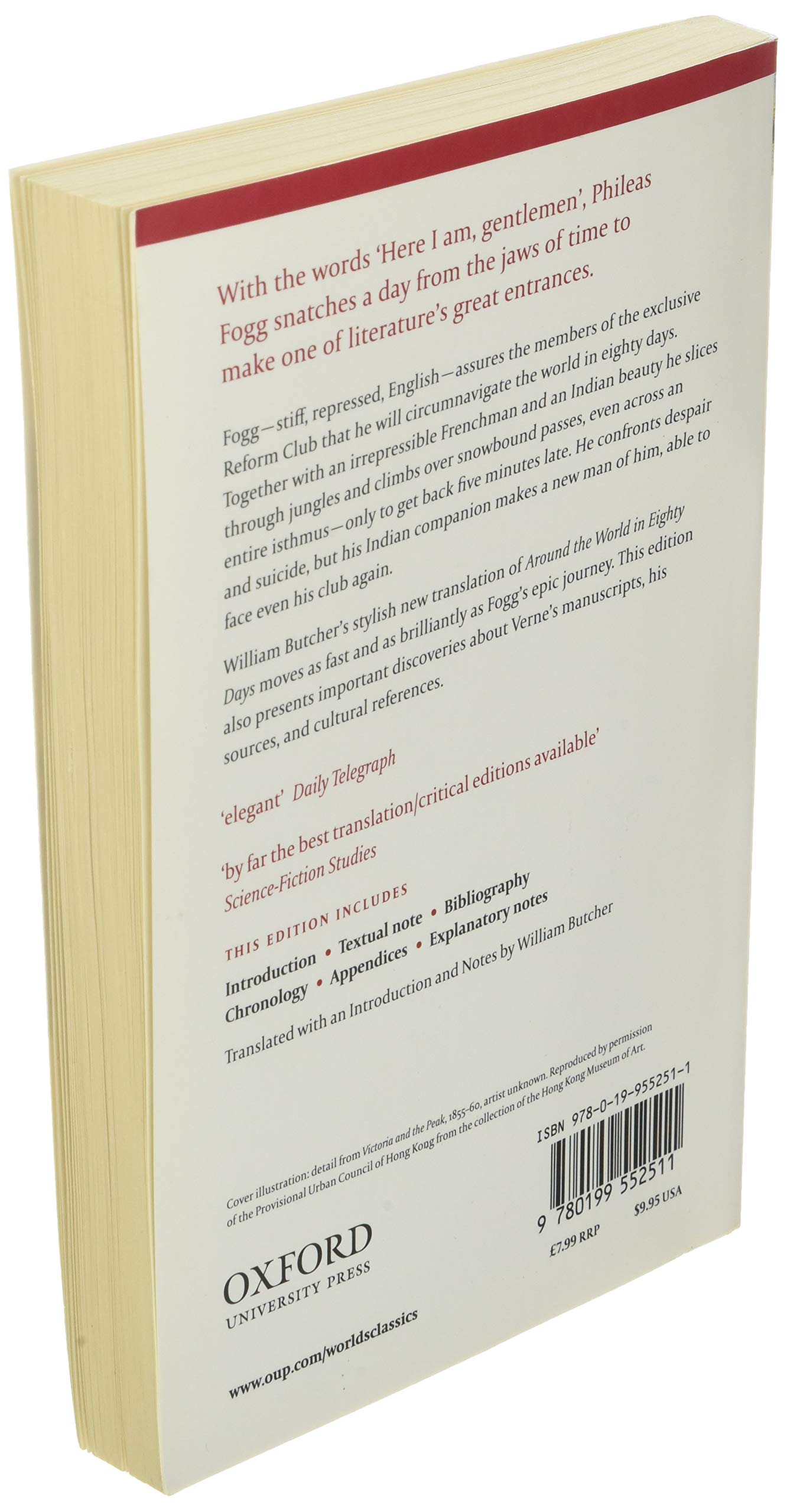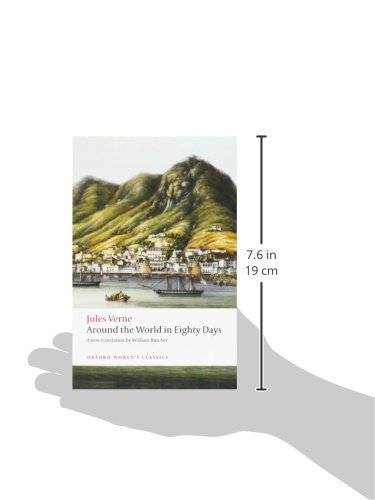Customer Services
Copyright © 2025 Desertcart Holdings Limited
Desert Online General Trading LLC
Dubai, United Arab Emirates






Full description not available


T**.
Authorative
First of all, it is excellently presented; pleasing cover, good quality paper and good typeface. What I appreciate most are the informative Introduction and notes on the text Apparently earlier translations have been poor.Given the way earlier screen versions have played fast and loose with the story,-(the recent BBC version bears hardly any resemblance to it at all),* I have finally found out what Jules Verne intended and am grateful and thinking of doing the same with some of his other books.* Eg. No hot air balloon in the book!
T**W
Great book
The book was brilliant. The time line of the author was fascinating, and the introduction was well written and thought provoking. The story itself is a wonderful adventure on every page, full of well consider plot and beautifully crafted characters. This story is timeless, in my humble opinion.
C**D
A book to keep
A lovely cover design on this edition. This classic book by Verne is a must read.
H**L
OWC Around the World in 80 Days
In a casual way I have been a collector of the titles in the Oxford World’s Classics (OWC) catalogue, primarily because I want to catch up with all those books I should have read years ago but also because I find the introductions and explanatory notes in this series extremely valuable and enlightening. Reading the book of an author who was imbued with the mindset of a hundred years ago sometimes needs some clarification. What was obvious then may not be so now. Of the several titles I have read in the OWC this has proved very helpful...until now. William Butcher, who offers this new translation of ‘Around the World in 80 Days’, with an introduction and explanatory notes, as far as I can tell has veered off on a tangent of his own. Now I admit it’s difficult for me to confidently contradict him when he points to Verne’s sexual innuendo in several places throughout the story because when he picks it out Butcher does not give the original French in the notes. Again, admittedly, there are some instances which support what he says if one chooses to interpret the English translation in that way. But that’s a very old school boy joke reused more than once by Monty Python. One could do it with anything if told with the apposite physical expressions and tone of voice!A prime example of where I struggle to see any sexual innuendo is this passage:‘An electrical bell and speaking-tubes communicated with the mezzanine and first-floor apartments. On the mantelpiece an electric clock kept perfect time with the clock in Phileas Fogg’s bedroom, the two devices striking the second simultaneously.The explanatory note offers:‘..in addition to the sexual connotation, Fogg’s domestic arrangements announce the magic spatio-temporal qualities of the telegram, with its use of electricity, its communication-at-a-distance, and the question it raises of extended simultaneity.’There are other examples which I won’t burden the reader with here, including the shapes of land masses. However it’s worth looking at one of Butcher’s notes for page 127 which without elaboration declares: ‘this paragraph is flagrantly sexual.’ But surely if it was flagrant it would be self-evident so why would we need to be told it is?In the end, to avoid being distracted, I chose not to refer to the notes until I’d finished the novel. Reading the passages for the second time, with Butcher’s eyes, left me somewhat bewildered. I repeat I cannot say that he is wrong because he doesn’t offer the primary material but if he is right then Verne’s intention does not come across (!) in the translation. Neither does he offer any insight into Verne’s intention if it’s all true. According to Butcher it just is and we must take his word for it. If it is there I don’t believe it adds anything to the plot and the best one could say is that Verne was having a bit of a laugh. But why? That’s what explanatory notes are for.
F**N
Journey’s End...
It is Wednesday, 2nd October, 1872, and as he does every day, Mr Phileas Fogg is playing whist with his friends in the Reform Club. But this day the conversation turns to how the world is shrinking as more and more places become linked by fast steamships or railroads. Fogg claims that it is now possible to go around the world in eighty days. His companions pooh-pooh this notion, and Fogg offers to prove his point by making the journey. A wager is hastily arranged for the massive sum of £20,000 – half Fogg’s entire fortune. He intends to use the other half to cover any unforeseen expenses on his travels. And within hours he’s off, accompanied only by his French manservant, Passepartout, whom he had hired just that morning. But, unbeknownst to them, they are being followed...Fogg is a man of rigid habits and an obsessive concern with punctuality and exactness in all things. The narrator suggests his background is rather unknown, but that he must have travelled in the past to give him his fairly encyclopaedic knowledge of the world. He is unflappable to an extraordinary degree given that his entire fortune is in the balance, but we eventually see that he has hidden depths. Passepartout, in contrast, is volatile and constantly getting into scrapes, but on the other hand he soon develops strong feelings of loyalty to his master and shows true bravery on more than one occasion. Then there is Detective Fix, trailing Fogg whom he suspects of having robbed Baring Brothers bank on the day he left London so suddenly. Fix spends half the time trying to slow them down and the other half trying to speed them up since he can only arrest Fogg on British soil – and the book reminds us that British soil spreads fairly extensively across the world at this period. The fourth character is an Indian woman they pick up along the way, but I won’t say more about her because to tell her story would be a bit too spoilery.The book starts a little slow, with a lot of concentration on timetables and dates and so on, and Fogg is not initially a very endearing character. He is interested only in achieving his aim of proving that the journey can be done in the time – he has no interest in the places to which they travel other than how quickly he can get out of them again on the next leg of the trip. Europe gets barely a mention, Egypt is a passing blur, and it’s only really when they reach India that they begin to have adventures. But by that time, Passepartout and Fix have developed into entertaining characters, sometimes friendly, sometimes not, and they give the story the life and liveliness that Fogg’s cold mechanical persona lacks. It’s in India too, though, that for the first time we see signs of humanity beneath that British stiffness, and from there on gradually Fogg also becomes someone we care about.From India to Hong Kong, to Japan, to America – sometimes ahead of the clock, sometimes behind. One adventure after another holds them back, each time throwing Passepartout into gloom and desperation but leaving Fogg unruffled and determined. And each adventure is more fun than the one before – storms and Sioux warriors, acrobats and opium dens, trains and steamships, polygamists and Parsees, and oodles of luck both good and bad. Will they make it back in time? Even though I knew the answer, I must admit I found the last fifty pages or so pretty heart-pounding, and joined Passepartout on his emotional roller-coaster ride between despair and euphoria. And the end is brilliantly done, misdirection and twists abounding!The new translation by William Butcher in my Oxford World’s Classics edition is excellent – flowing and fun. His rather scholarly introduction left me somewhat befuddled, in truth. As always, I read the book first, and imagine my surprise on being told that it’s full of sexual innuendo and “brazen homosexual overtures” between the three male characters. I missed all of that! Even though he’s now told me it’s there, nope, I don’t see it. Maybe he’s right – in fact, since he’s a Verne expert and I’m not, I’m willing to assume he is right – but then, on the other hand... sometimes a cigar is just a cigar. Butcher goes so far as to say “the book is not designed for callow adolescents”. Hmm, I was probably a callow adolescent when I first read it, and I don’t think it corrupted my innocence! I did enjoy Butcher saying that Verne had portrayed the Mormons as an “erotico-religious group” though – I missed that too...So an excellent adventure story suitable for all ages, or a walk on the wild side of sexual psychology, depending on whether you believe me or Butcher. Either way, highly entertaining – great stuff!NB This book was provided for review by the publisher, Oxford World’s Classics.
Trustpilot
4 days ago
3 weeks ago